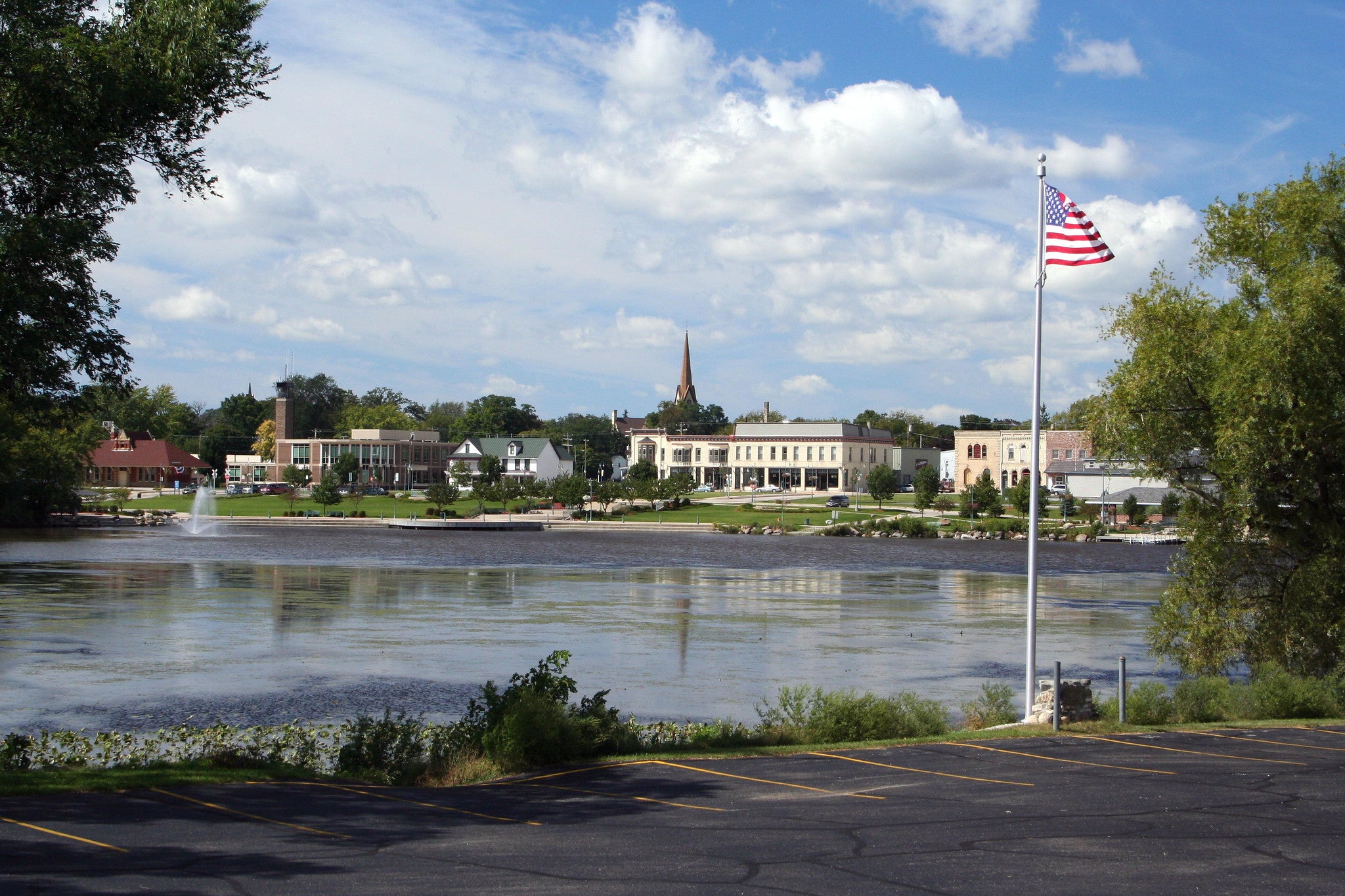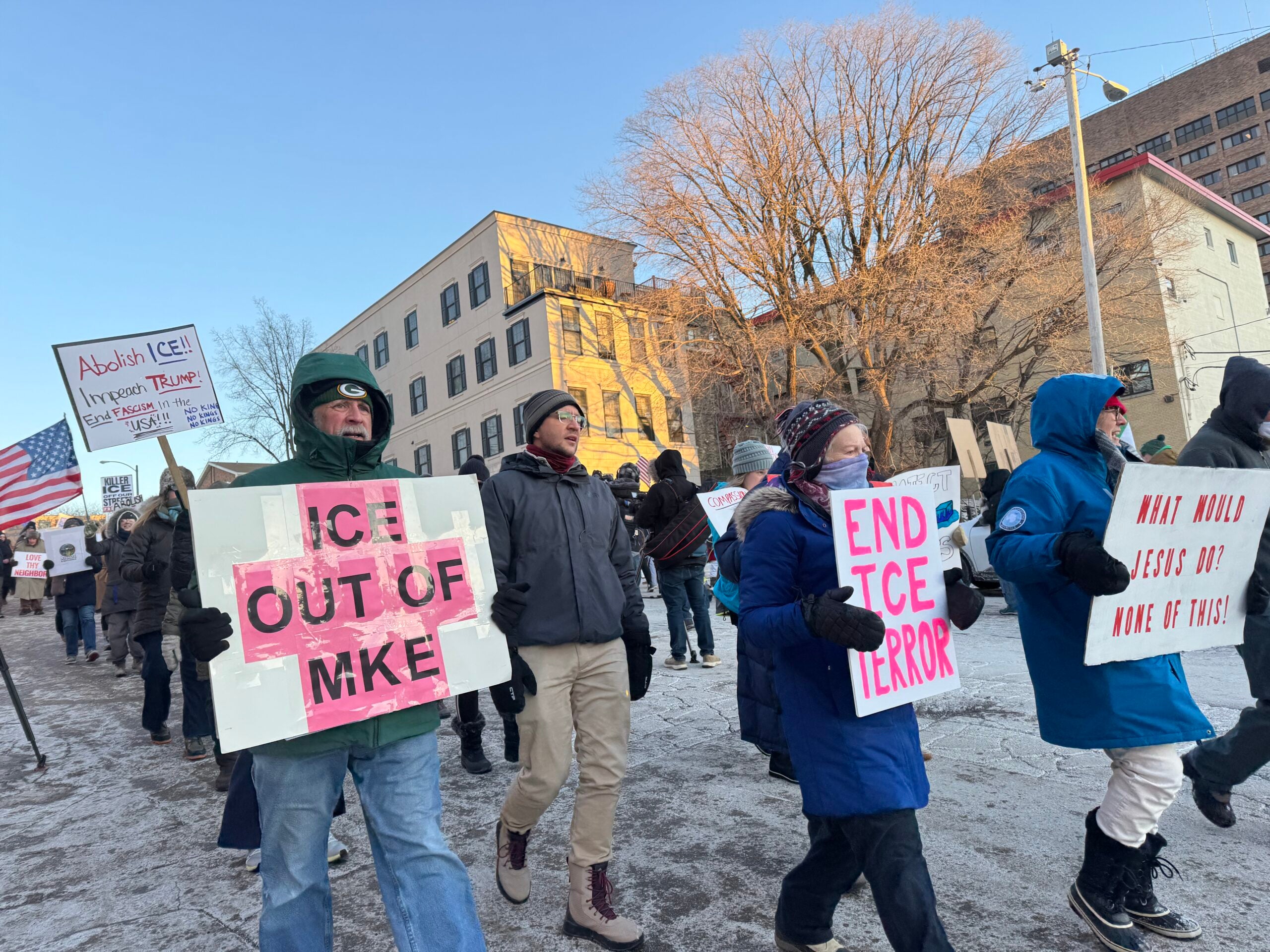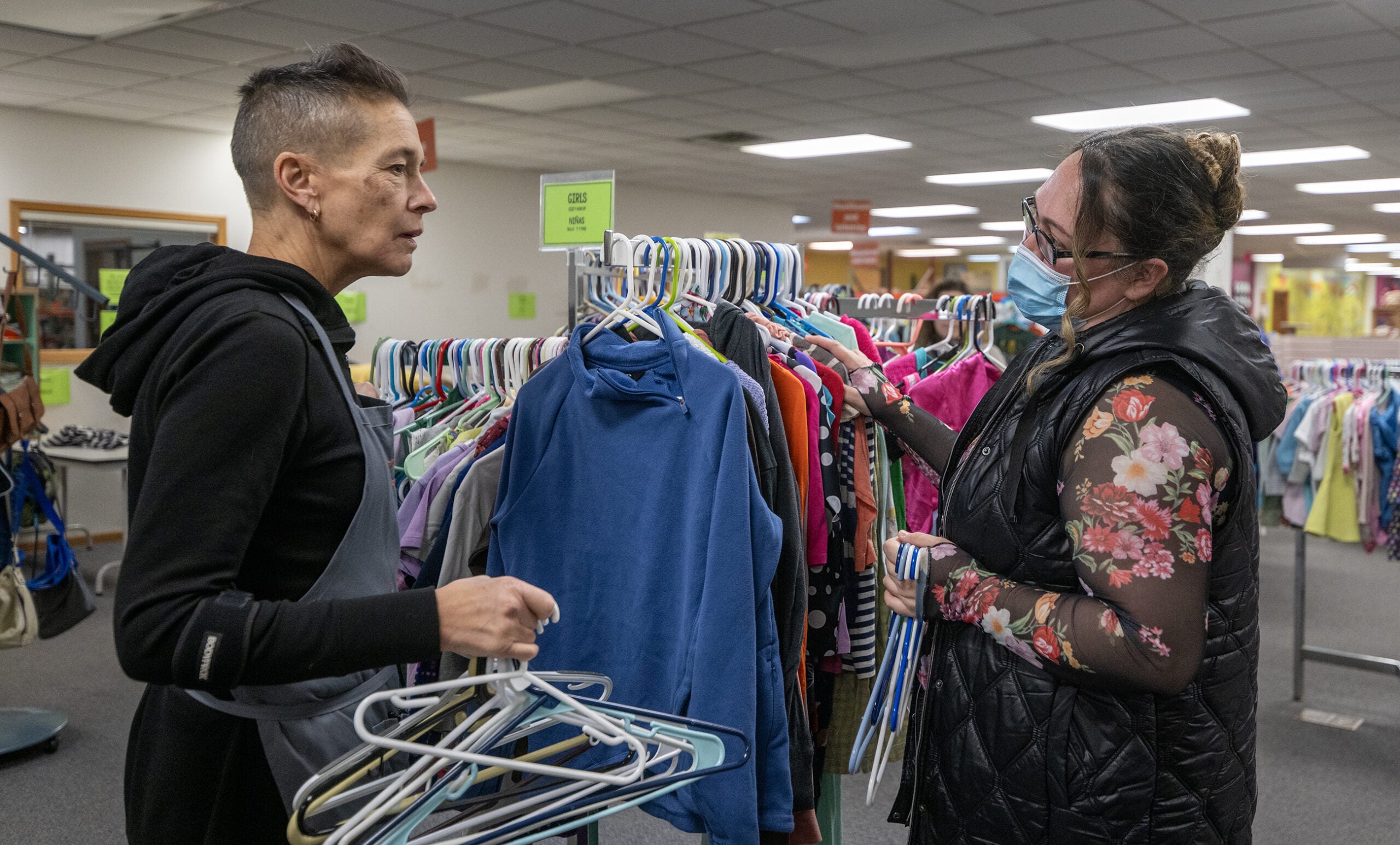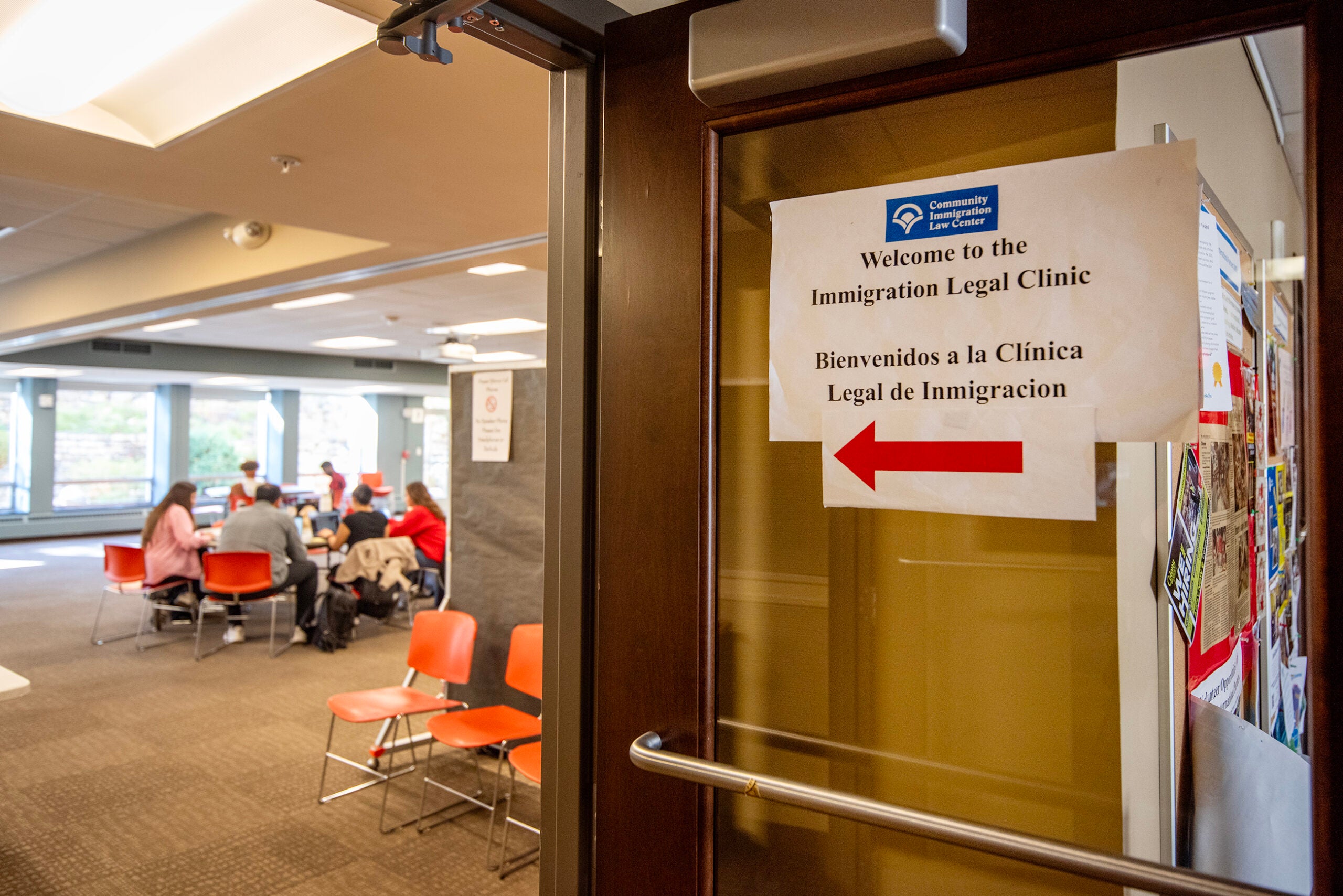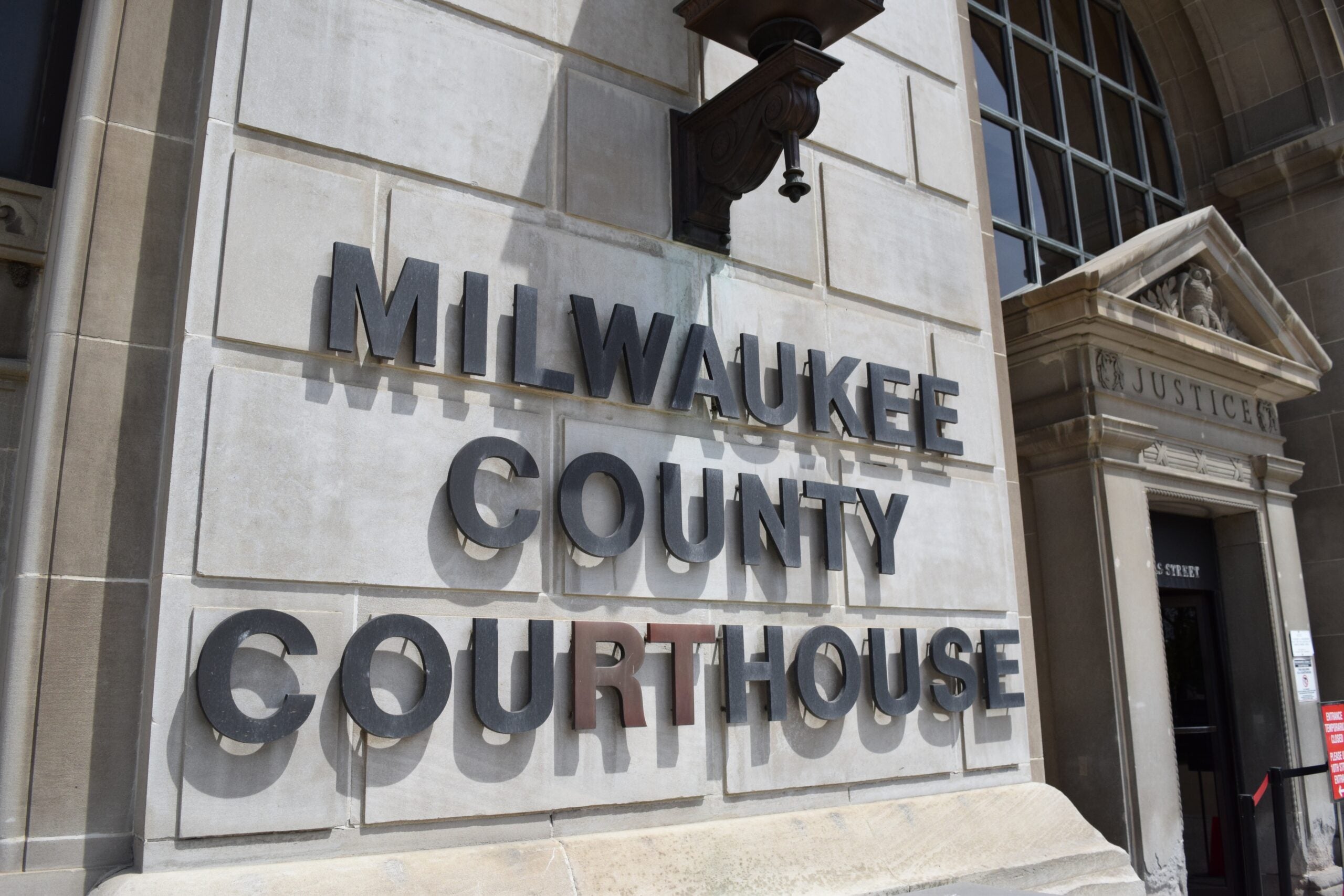The police chief of a small city in southeastern Wisconsin is asking for federal help in response to a bump in immigration.
A letter, dated Dec. 28, is signed by Whitewater Police Chief Dan Meyer and co-signed by City Manager John Weidl, according to a copy provided by the chief.
Once it’s signed by all of Whitewater’s Common Council members, Whitewater will send it to a list of 13 officials, including Democratic President Joe Biden, Wisconsin’s Democratic Gov. Tony Evers and a host of national and state elected representatives, Meyer said Thursday afternoon.
News with a little more humanity
WPR’s “Wisconsin Today” newsletter keeps you connected to the state you love without feeling overwhelmed. No paywall. No agenda. No corporate filter.
The letter pleads for funding to hire additional staff, including more police officers and an immigrant liaison, in response to a “rapid increase” in immigrants arriving to the city, mostly from Venezuela or Nicaragua.
“Each individual has a different reason for coming here; some are fleeing from a corrupt government, others are simply looking for a better opportunity to prosper,” the letter says. “Regardless of the individual situations, these people need resources like anyone else, and their arrival has put great strain on our existing resources.”
The letter estimates between 800 and 1,000 new people have arrived in the city, over a roughly two-year period starting in early 2022. The department reached those figures by extrapolating from school enrollment data, Meyer said.
“I’ll be the first to say that that’s our best guess. And that’s a very difficult number to get accurate, because we’re talking about at least a portion of the population that’s undocumented,” Meyer said in an interview with WPR.
Leaders want more funding to support transportation, housing and language courses
Whitewater’s population is just over 15,600 people, according to the U.S. Census Bureau’s 2022 estimate. Its foreign-born population, including those with and without citizenship, makes up roughly 7.5 percent of that number, according to an estimate from the Census Bureau’s American Community Survey, which spans five years, ending in 2022.
The letter describes people living in substandard conditions, including over-occupied apartments and a family living in a 10-foot by 10-foot shed while being subjected to temperatures 10 degrees below zero.
“A number of non-profit organizations have taken great strides in providing this group with basic essentials like clothing and medical care,” the letter says. “However, with additional funding, the City could begin to incentivize new initiatives such as ride-share programs, affordable housing opportunities, and language courses.”
Meyer said the changes have created challenges for the police department, including an estimated $6,000 spent on translation services in 2023 and a higher workload that’s made it more difficult to police proactively.
And the letter cites an uptick in unlicensed drivers throughout the city. During the first eight months of 2022, the department issued more than 200 citations for operating without a license — roughly a threefold increase compared to that time period in 2020, according to information provided by the Whitewater Police Department.
Wisconsin is among 31 states that do not allow unauthorized immigrants to obtain driver’s licenses, according to the National Conference of State Legislatures. Evers has tried to change that through multiple budget proposals, but provisions to extend driver’s licenses regardless of immigration status have not been approved by Wisconsin’s Republican-controlled Legislature.
Depending on the details of a proposal, Meyer says he’d likely support extending driver’s licenses to unauthorized immigrants.
“Pragmatically speaking, if people are able to obtain the ability to drive by taking the test, knowing the rules of the road and showing that they can do that safely, to me, that is a better scenario than continuing to make that illegal, and having people make the choice to drive anyway, putting other drivers and themselves at risk,” he said.
Although the letter mentions multiple violent crimes, which it says were tied to recent immigrants, Meyer said his aim was not to vilify any group of people.
“If that’s the case, that is not at all what our intent is here,” he said. “Our intent is to make sure that that population that’s here can get the proper services that they need, just like the rest of the community.”
Earlier this year, WhitewaterWise.com reported that Whitewater’s Common Council had signed off in a December meeting on a draft of the letter destined for Biden and other officials. Since then, news of the letter has been picked up by outlets ranging from the Milwaukee Journal Sentinel to the far-right website Breitbart.
“I’m encouraged that people are hearing about the issue because it’s something that needs attention,” Meyer said Thursday. “That said, what I’m hearing and reading in some cases is some of the words being taken out of context … This was not done to take a political angle. … This letter was not written to give people political ammunition. This letter was written to describe the situation that we’re facing here in Whitewater, and to attempt to secure resources to address it.”
Marjorie Stoneman, who leads a group called Whitewater Unites Lives, says she hopes any final letter sent out by the city makes clear how valuable and necessary immigrants are to Whitewater.
“Immigrants to Whitewater contribute to our community, volunteering in our schools, start small businesses and are integral to our basic community fabric,” she said in an interview with WPR, adding that she believes an immigrant liaison position within the city would be beneficial. “We really do appreciate that the chief of police is seeking resources to assist everyone in our community.”
Kristine Zaballos says she’s also hoping that the letter could lead to more resources to support immigrants in Whitewater. Zaballaos is executive director of The Community Space, a Whitewater-based organization that offers free clothing, food and furniture to people without requiring them to provide proof of income or residency.
“If (the letter) serves to bring more needed resources to the community, in particular bilingual resources to the community, then it would benefit us all,” Zaballos said.
Wisconsin Public Radio, © Copyright 2026, Board of Regents of the University of Wisconsin System and Wisconsin Educational Communications Board.

